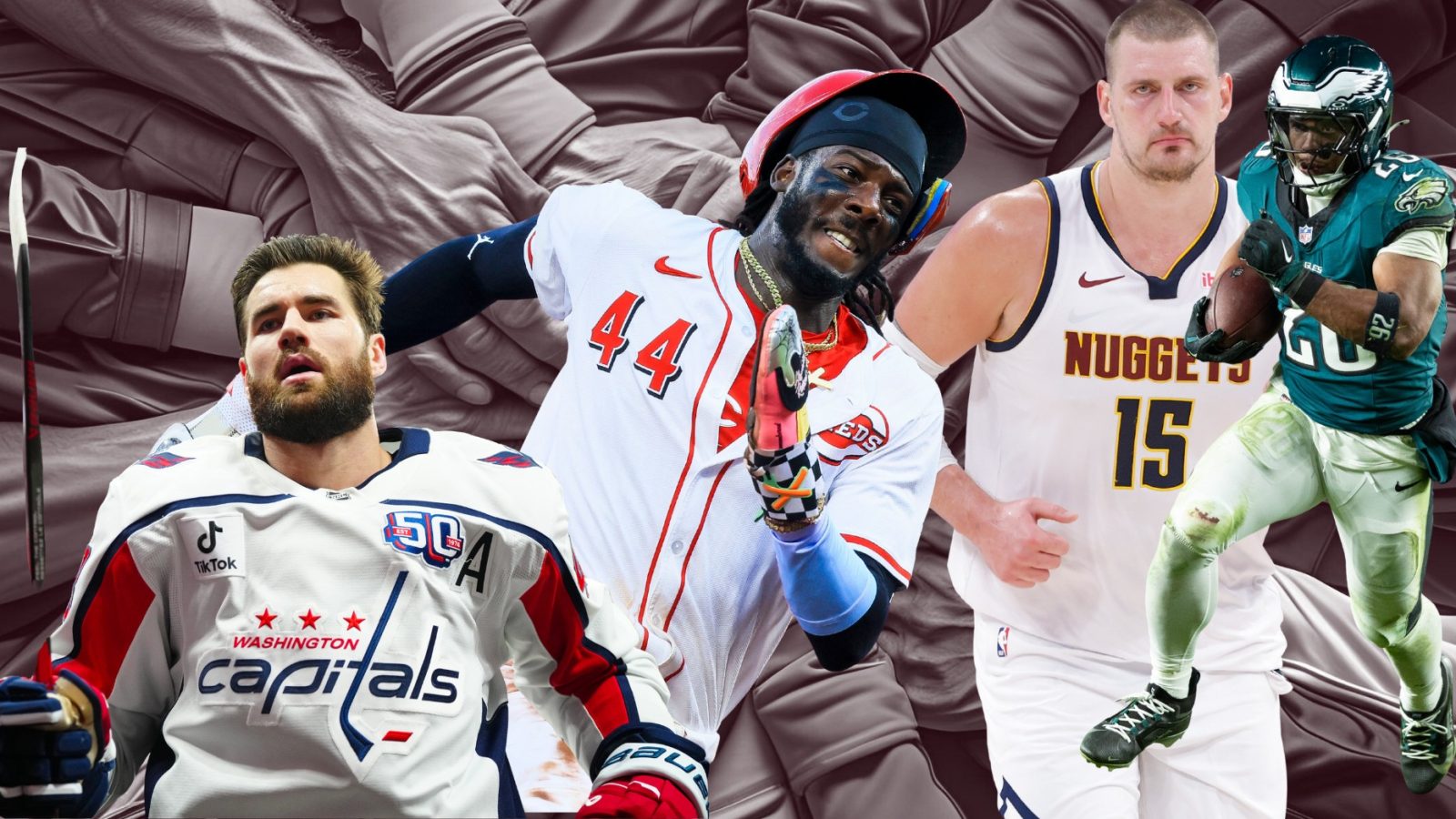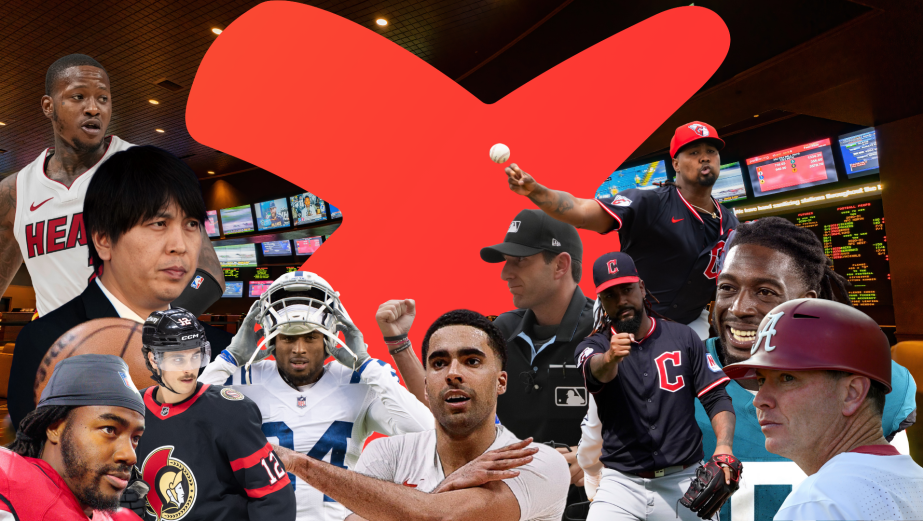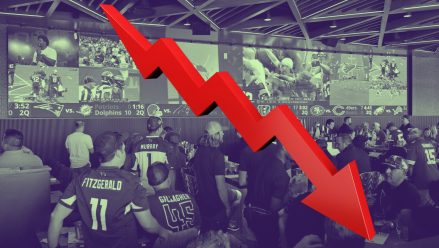The NBA and the National Basketball Players Association (NBPA) are allies of circumstance over prop bets. The league and the players — stung by three public relations spectacles, with former Toronto Raptor Jontay Porter banned for life for manipulating prop bets and two others under investigation — continue to ask for the reduction of what they consider vulnerable types of player-dependent wagers.
Where do the other leagues stand?
MLB Commissioner Rob Manfred has long been critical of the type of bets that led to the investigations that put Cleveland Guardians’ pitchers Luis L. Ortiz and Emmanuel Clase on paid administrative leave until at least Aug. 31. He persists in that opinion. Players have railed at the corrosion of their relationship with fans-turned-bettors but have mostly let MLB lead.
The NHL and the NFL have had their own sports betting scandals, with most of the NFL’s problems occurring when players either bet on NFL games or on other sports while on team property. Like the NFL, the NHL has not yet weathered any known game-manipulation scandals.
MLBPA
MLB’s painful history with gambling — still colored by the legacy of the 1919 Chicago White Sox and Pete Rose — has complicated a day’s work for players since legal sports betting became a revenue-generator and engagement tool for ownership. Mobile phones have become the means to place bets and harass players when they fail. Pitchers Lance McCullers Jr., Lucas Giolito, and Liam Hendriks are among many who have detailed their abusive in-person and virtual encounters with fans. Venmo requests sent by upset bettors to players for reimbursement have become a norm.
An anonymous poll of 133 players by The Athletic in June found that 78.2% said legalized sports betting has changed fan interaction for themselves and teammates. Just 12% reported no change.
Said a player to The Athletic: “I think it’s only going to get worse because of how popular [prop betting] is. There are ways to bet pitch-by-pitch in the stadium during the game. I’ll be in Wrigley in center field and I have people telling me they’re going to put money on me to hit a home run the next at-bat. I don’t need to know that.”
Those types of microbets are at the core of MLB’s latest sports betting scandal with Ortiz and Clase. The investigations center on whether they intentionally threw uncompetitive first pitches to cash props.
Manfred, who in 2024 claimed baseball had been “dragged” into sports betting — first as a litigant in Murphy vs. National Collegiate Athletic Association, but effectively as a beneficiary — has been consistent in his opposition to certain types of bets that are considered by industry experts exploitable, like first-pitch props.
“We’ve been on prop bets from the very beginning. When we lobby in states, there’s always certain types of bets that we have lobbied against — I mean, the first pitch of the game, we really don’t want that available as a prop bet,” he said last year. At the All-Star Game this year, he told reporters that microbets were “unnecessary and particularly vulnerable.”
Tony Clark, executive director of the Major League Baseball Players Association (MLBPA), was prescient in lamenting possible concerns with “player safety” and prop bets when the Professional and Amateur Sports Protection Act was repealed in 2018. In 2024, he claimed “we’re entering a very delicate and, dare I say, dangerous world here” regarding sports betting partnerships.
Then the 2022 Collective Bargaining Agreement allowed MLBPA members to be the first into a very different world: active players as sportsbook representatives (with limitations on what they could promote). Perhaps sensing potential backlash or finding the deals weren’t lucrative enough, most players abstained. Just one, Colorado Rockies outfielder Charlie Blackmon, inked a deal in 2022, but that sportsbook — regional boutique outlet MaximBet — was out of business within a year.
NFLPA
NFL players have shown a willingness to allow the league to establish, enforce, and pontificate on a mutually beneficial relationship with gambling that pre-dates the end of PASPA. After a wave of player violations in 2023, the league amended its gambling rules for clarity and no violations were found last season, Sabrina Perel, the league’s chief compliance officer confirmed.
Players appear to be aware that the league would act in its self-interest. ProFootballTalk reported in 2023 that a spate of player gambling violations for betting while on team property was triggered when sportsbooks tipped off the NFL.
While football prop bets are widely available, industry integrity experts and former players feel the high number of players involved in a game and team make tanking them extremely difficult. A running back, for example, who is struggling to gain yards will be subbed out, former New York Giants wide receiver and responsible gambling advocate Amani Toomer told InGame.
“If you go half-speed, you usually get taken out of the game,” he said. “I don’t think anybody’s secure enough. Maybe in these sports with guaranteed contracts, maybe it’s a little different. But with football, it’s not that way. You’re playing with your hair on fire every day.”
Run/pass microbets remain one of the most vulnerable in football, according to industry experts, with a quarterback alone able to dictate the initial action. Without knowing the exact reason any individual would conspire, Toomer still can’t grasp why a quarterback would manipulate bets in a league where backups average about $1.2 million in salary per year.
“You still have got to be trying to do as much as you possibly can,” he said. “But in baseball, you have more leverage. There’s more freedom for the players to kind of do what they want. It’s more of like a field game. Baseball would be easy, basketball would be easy because you only have to get one person. But in football, you have to get a lot of people.”
With the union’s support, the NFL successfully lobbied the Ohio Casino Control Commission in February to outlaw certain prop bets that single individuals could influence, such as whether a quarterback’s first pass of the game would be complete, or if a kicker would miss a field goal or extra point.
The NFLPA has not publicly stated its position on props or microbets, but players have reported abuses the union attributes to disgruntled bettors. The NFLPA is known to support safeguards that protect players’ safety, mental health, their loved ones and biometric data.
NBPA
Arguably no North American professional sports league has been more negatively impacted by clandestine sports betting than the NBA. Porter became the league’s icon of scandal last year — replacing disgraced referee Tim Donaghy — after a federal investigation unearthed his role in a prop-manipulation scheme with an illegal gambling ring. He was banned for life in April 2024. Investigations of players Malik Beasley and Terry Rozier are underway, but neither has been charged criminally.
With the 2025-26 season approaching, the league and union reasserted their position recently on the need for greater scrutiny of prop bets like the ones Porter was found to have tanked to win bets. They brought slightly different vantage points to the request.
An NBA spokesperson told ESPN in a statement: “Protecting the integrity of our game is paramount, and we believe reasonable limitations on certain prop bets should be given due consideration. Any approach should aim to reduce the risk of performance manipulation while ensuring that fans who wish to place prop bets can continue to do so via legal, regulated markets.”
An NBPA spokesperson told ESPN that its greatest concern with prop bets is the harassment it believes they engender, adding “if tighter regulations can help minimize that abuse, then we support taking a closer look at them.”
Sportsbooks have cooperated with similar requests in the past, specifically eliminating “under” props for players on 10-day or two-way contracts.
NBA Commissioner Adam Silver has followed the wind currents of the rise of legal betting’s influence in pro sports — first against it and then for it, with guardrails, once it became inevitable. The 2023 Collective Bargaining Agreement allowed players to become sportsbook ambassadors with well-defined caveats:
- “Such participation is limited to (1) general brand promotion or endorsement, or (2) promotion or endorsement of betting on non-NBA League sports;
- “Compensation for such participation is not determined in any respect by NBA League wagering
or outcomes of NBA League games (e.g., compensation to the player may not be based on the amount wagered on NBA League games); - “Such participation and such Gaming Company’s operation comply with all applicable laws and
regulations relating to sports wagering, fantasy sports contests, or similar transactions.”
The compact also allowed players to become “passive” investors in sportsbooks. LeBron James (DraftKings) was the only player to sign such a deal.
NHLPA
Ottawa Senators forward Shane Pinto has so far been the only NHL player snared in a gambling controversy. He was busted by integrity monitors, suspended 41 games in 2023, and apologized for making a mistake that he said was borne of ignorance. Pinto resumed his career with little further fanfare. He later admitted he had been using friends in the United States to place proxy bets for him. The league found he did not bet on NHL games.
The 2020 Collective Bargaining Agreement between the NHL Players’ Association and the league allowed active players to follow the MLBPA lead and become brand ambassadors for sportsbooks, but in a veritable mascot role. They were disallowed from encouraging bettors to wager on NHL games.
Edmonton star center Connor McDavid (BetMGM), plus center Auston Matthews (Bet99) and forward John Tavares (Proline) of Toronto, signed deals, but an eventual change of gambling regulations in Ontario — Canada’s most populated province — allowed them to only promote responsible gambling.






